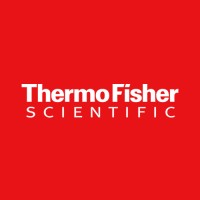CD38 / Qdot 655 / HIT2
Product Details
| Description | CD38 Monoclonal Antibody (HIT2), Qdot™ 655 | |
|---|---|---|
| Conjugate | Qdot 655 | |
| Clone | HIT2 | |
| Target Species | Human | |
| Applications | FC | |
| Supplier | Thermo Fisher Scientific | |
| Catalog # | Sign in to view product details, citations, and spectra | |
| Size | ||
| Price | ||
| Antigen | ||
| Host | ||
| Isotype |
About CD38
The protein encoded by this gene is a non-lineage-restricted, type II transmembrane glycoprotein that synthesizes and hydrolyzes cyclic adenosine 5'-diphosphate-ribose, an intracellular calcium ion mobilizing messenger. The release of soluble protein and the ability of membrane-bound protein to become internalized indicate both extracellular and intracellular functions for the protein. This protein has an N-terminal cytoplasmic tail, a single membrane-spanning domain, and a C-terminal extracellular region with four N-glycosylation sites. Crystal structure analysis demonstrates that the functional molecule is a dimer, with the central portion containing the catalytic site. It is used as a prognostic marker for patients with chronic lymphocytic leukemia. Alternative splicing results in multiple transcript variants. [provided by RefSeq, Sep 2015]
The protein encoded by this gene is a non-lineage-restricted, type II transmembrane glycoprotein that synthesizes and hydrolyzes cyclic adenosine 5'-diphosphate-ribose, an intracellular calcium ion mobilizing messenger. The release of soluble protein and the ability of membrane-bound protein to become internalized indicate both extracellular and intracellular functions for the protein. This protein has an N-terminal cytoplasmic tail, a single membrane-spanning domain, and a C-terminal extracellular region with four N-glycosylation sites. Crystal structure analysis demonstrates that the functional molecule is a dimer, with the central portion containing the catalytic site. It is used as a prognostic marker for patients with chronic lymphocytic leukemia. Alternative splicing results in multiple transcript variants. [provided by RefSeq, Sep 2015]
About Qdot 655
Qdot® 655 from Thermo Fisher Scientific is an inorganic nanocrystal with a surface functionalized to allow antibodies and biomolecules to be cross-linked. It is most efficiently excited between 320-405 nm but is capable of excitation across every laser less than its emission peak. It is significantly brighter and more photostable than traditional organic fluorophores, making it still useful for fluorescence microscopy, however its size and solubility issues make it a challenge to use in flow cytometry. In spectral flow cytometry it may still prove useful due to its very unique spectral characteristics
Qdot® 655 from Thermo Fisher Scientific is an inorganic nanocrystal with a surface functionalized to allow antibodies and biomolecules to be cross-linked. It is most efficiently excited between 320-405 nm but is capable of excitation across every laser less than its emission peak. It is significantly brighter and more photostable than traditional organic fluorophores, making it still useful for fluorescence microscopy, however its size and solubility issues make it a challenge to use in flow cytometry. In spectral flow cytometry it may still prove useful due to its very unique spectral characteristics
Experiment Design Tools
Panel Builders
Looking to design a Microscopy or Flow Cytometry experiment?
Validation References
Reviews & Ratings
| Reviews |
|---|
Looking for more options?
2287 CD38 antibodies from over 54 suppliers available with over 162 conjugates.





